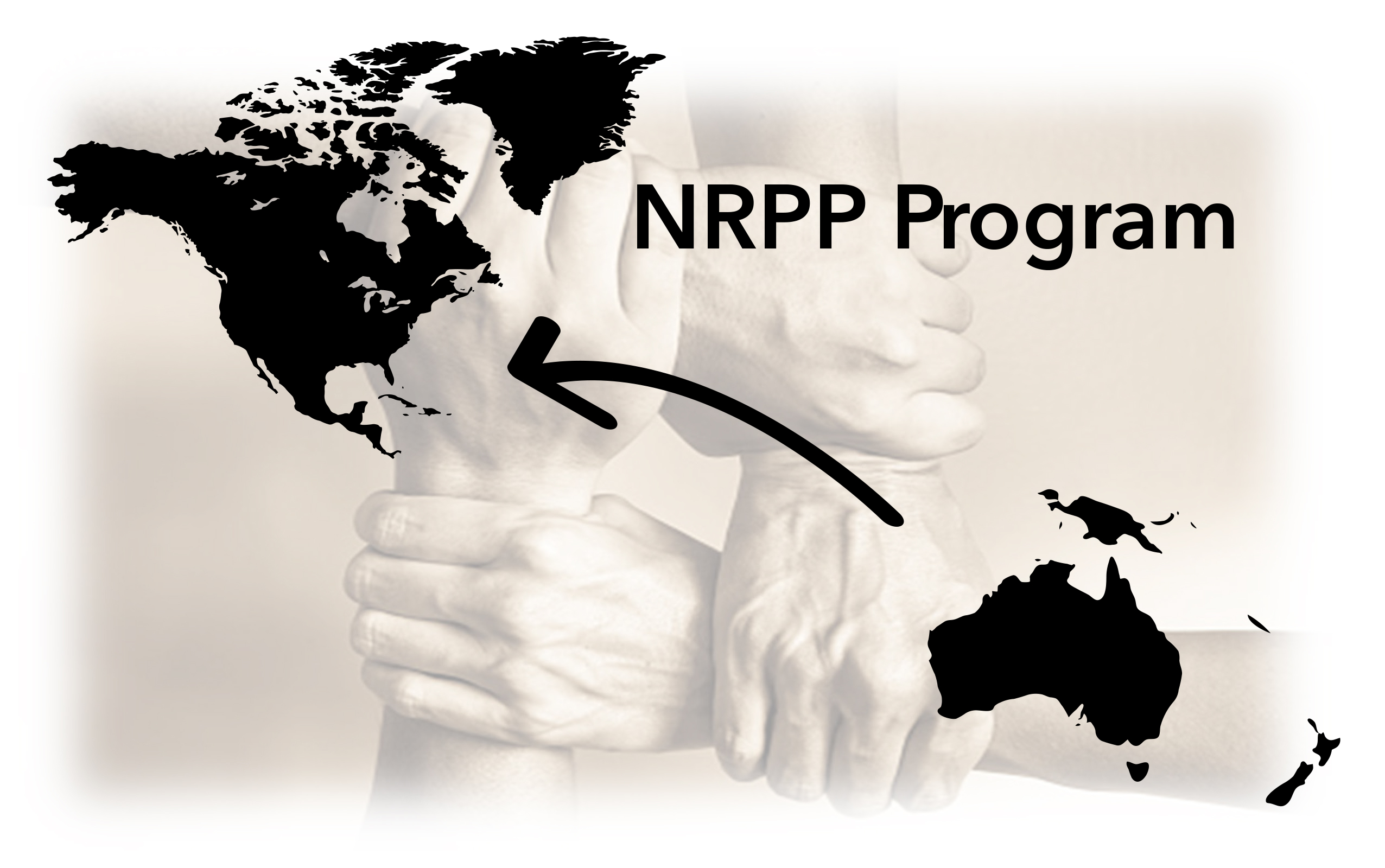
The Nauru and Papua New Guinea (NRPP) Program is a national program funded by the Office of Home Affairs of Australia to provide enhanced case management to refugees arriving in the United States from Nauru, Papua New Guinea, and the Australian mainland.
The program began January 1, 2020 and will continue until December 31, 2024
Q: Who is eligible for this program?
A: Refugees in the United States who have a refugee travel document with a case number starting with NR-100…, PP-100…, or AS-900…, are eligible for assistance through this program.
Q: What help can NRPP provide?
A: NRPP helps participants achieve goals toward long-term stability and upward mobility. Participants are connected to a case manager, encouraged to set goals, and supported in reaching their goals. Financial assistance is available to support achievement of goals.
Some ways NRPP has helped existing participants are:
- Securing safe, affordable housing and paying move-in costs
- Enrolling in CDL training and assistance toward training fees
- Treating dental problems
- Connecting with community members and accessing local resources
- Career mapping and enrolling in college
Refugee Travel Document

Look what the NRPP community has achieved! If you would like to have your achievement shared, please email [email protected]
Do you have a complaint about the NRPP program? Or an idea about how we can make the program better? We’d like to know! Please provide the below information so your complaint can be addressed, or your suggestion considered
Immigration Resources
- https://www.uscis.gov/green-card/green-card-eligibility/green-card-for-refugees
- https://www.acf.hhs.gov/orr/map/find-resources-and-contacts-your-state
- Processing times: Processing for immigration petitions takes a LONG TIME! The amount of time your petition takes might be very different from the amount of time another person’s petition takes. Click on this link and select I-730 for family reunification or I-485 for a green card to find out if your petition has been in process longer than the USCIS projected time. If your petition has been in progress longer than the projected amount of time, you should follow up with the attorney who helped you file.
- Click here to check your case status using the receipt number on the confirmation letter you received in the mail from USCIS after filing.
- Click here to create a USCIS account to begin or track a petition. You should always meet with an attorney to get help filing an immigration petition. This process is too complicated to do yourself!
Recommended legal service providers:
Please select your resettlement agency below to see legal services providers. If you don’t see your agency or if you have moved away from your initial resettlement location, contact your case manager for referral to immigration support.
- U.S. Committee for Refugees and Immigrants (USCRI)
- International Rescue Committee (IRC)
- Lutheran Immigrant and Refugee Services (LIRS)
- Hebrew Immigrant Aid Society (HIAS)
- Ethiopian Community Development Council (ECDC)
- Church World Service (CWS)
- World Relief (WR)
- S. Council of Catholic Bishops (Catholic Charities)
IMPORTANT: It is not possible for a private lawyer to get an application approved or guaranteed by a certain deadline. Lawyers who promise that your family will join you in two weeks (or any exact amount of time) if you pay them a lot of money are probably lying. Please talk to your case manager before paying a private lawyer. NRPP can help you pay for immigration support from licensed attorneys at your local resettlement agency.
- Learn more about immigration scams:
Resources for truck drivers
Is truck driving right for you?
- Many NRPP members have built successful, happy careers as truck drivers. Others, however, have discovered after completing training that truck driving is not right for them. It can be dangerous, physically difficult for those with existing physical conditions, and bad for those experiencing stress, anxiety, or depression. Additionally, year-round truck driving jobs are not always available. NRPP encourages participants to think carefully and talk to friends and job developers before starting a truck driving career.
What next?
- If you choose to train as a CDL driver, NRPP recommends making a plan for your long-term career. Your NRPP case manager can help with this. Many truck drivers upgrade from a class A to a class B or C license, allowing them to transport passenger vans such as airport shuttles, school buses, or city buses. Other truck drivers upgrade to a heavy machinery license, allowing them to work well-paid local jobs on construction sites, warehouses, etc.
Here are some resources for planning a career in truck driving and staying safe and informed on the road:
- https://www.smart-trucking.com/career-in-trucking/
- https://www.smart-trucking.com/new-truck-driver/
- https://www.smart-trucking.com/depression-in-truckers/
- https://www.cdljobs.com/resources
- https://www.fmcsa.dot.gov/resources-for-drivers
- https://www.midwesttech.edu/resources/careers/what-is-the-typical-career-path-for-truck-drivers/
- The Small Business Association Training and Loan Program can be helpful for setting up your own trucking company or buying a truck.
Mental Healthcare: Some NRPP community members experience stress, anxiety, and/or depression due to negative experiences and difficult life circumstances. Support is available through the program to help clients find and pay for a therapist to help achieve good mental health.
Here are some resources explaining the mental health challenges some refugees in the U.S. encounter and the strategies they have found helpful:
- https://usahello.org/health/mental-health/
- These stories are about Bhutanese refugees but may have some parallels to NRPP community members.
- https://simiaroom.com/
- This article focuses on second-generation immigrants. Hopefully, some of the observations are still helpful.
- This article is also written from a second-generation Persian perspective but with some good insights.
- https://threesixty.stthomas.edu/the-mental-health-stigma-in-somali-community-culture-can-be-a-barrier-to-treatment/#:~:text=Minnesota%20is%20home%20to%20the%20largest%20Somali%20population,to%20the%20Centers%20for%20Disease%20Control%20and%20Prevention
Healthcare:
- We recommend this website for participants who need extensive dental treatment to purchase a dental savings plan before starting treatment. Your case manager and a dentist can advise you on purchasing a savings plan, and NRPP can pay the plan cost. Buying a dental savings plan can reduce your total bill and help NRPP financial assistance cover more treatment.
- This website is the best place to access healthcare if you are not eligible for Medicaid, Refugee Medical Assistance, or healthcare through your employer. If you have a low income, healthcare through healthcare.gov is often subsidized!
- To apply for Medicaid, to apply for help using healthcare.gov, or to explore other healthcare options, speak to your case manager.
Attending college:
- Low-income Americans and Permanent Residents who have never attended college are eligible for a Pell Grant to contribute to a college education. Most vocational schools are not eligible for Pell Grant support. To begin the qualification process for federal education funding, complete the FAFSA: https://studentaid.gov/h/understand-aid/how-aid-works
- https://usahello.org/education/university-adult-education/scholarships/
- https://switchboardta.org/blog/overcoming-the-financial-challenge-of-higher-education/
- https://services.unhcr.org/opportunities/search?field_scholarship_programme_prov_value=&you_are_from%5B%5D=All&country_of_asylum%5B%5D=All&country_of_asylum%5B%5D=United+States&field__country_ies_of_studies_value%5B%5D=United+States&ideal_language_of_study%5B%5D=English&field_are_you_providing_opportun_value%5B%5D=b&field_are_you_providing_opportun_value%5B%5D=any
- Adult education classes can help students improve literacy, mathematics, and English language skills. Also, the classes help students prepare for work or enrollment in postsecondary education and training programs. For programs that are publicly funded, this lookup tool will help students identify local adult education programs (including education and literacy programs) that receive public funding from the federal government.
- Many scholarships are specific to certain locations or schools. Some specify the national origin or religion of the recipient: https://www.scholarships.com/financial-aid/college-scholarships/scholarship-directory/special-attributes/refugee-immigrant?sortOrder=title&sortDirection=asc
- https://www.higheredimmigrationportal.org/effective_practice/quick-guide-refugee-eligibility-for-admissions-to-higher-education/
- Before enrolling in most colleges in the U.S., non-native English speakers must take the TOEFL or enroll in ELL classes. Federal financial aid is usually not available for required university-level ELL classes. NRPP can help with this expense if needed.
- If you know which college you want to attend, a good first step is to visit the school’s counseling office. This office is also sometimes called the financial aid office or guidance office. Counselors can help you fill out the FAFSA. You will need to bring physical or digital copies of your identity documents, bank statements, tax returns, and pay stubs to fill out the FAFSA. The guidance office can also help you plan what classes you need to take and discuss the next steps with you.
Existing professional qualifications:
- A client who arrived in the United States with professional degrees and experience and want to return to their field may be interested in the following resources:
- Upwardly Mobile is a coaching and networking organization for refugees with professional skills who need advice and support to rejoin their field. A significant commitment of time and effort is required of the job seeker.
- Organizations that offer certification degrees include https://www.wes.org/ and https://www.naces.org/. Please make sure the company or university you want to access accepts degree certifications from the organization you select before completing the certification process. However, not all types of evaluations are accepted by all companies and universities.
Get connected to members of your community! Enter your name, contact information, and language here to see the contact information of fellow NRPP members who have signed up.
What do you think? If you were looking for information and it isn’t here or if you find something on our website inaccurate or upsetting, we want to correct it! Please email [email protected] to share your observation.









































